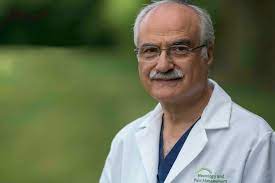Cardiovascular health is witnessing a remarkable era of progress and innovation. Thanks to advancements in medical technology and a deeper understanding of heart-related issues, there are exciting trends and developments on the horizon. Dr Julian Sargon-Ungar highlights some of the most promising developments in the field of cardiovascular health to anticipate:
Personalized Cardiovascular Care
Just as in neurology, personalized medicine is making its mark in cardiology. Tailoring treatments based on a patient’s genetics, lifestyle, and risk factors is becoming increasingly common. This approach allows for more precise and effective interventions, reducing the risk of heart diseases.
Telemedicine for Heart Health
Telemedicine is transforming the way cardiovascular care is delivered. Patients can now access consultations, monitoring, and follow-up care remotely, improving access to specialized care and early interventions. This trend is especially significant for individuals in remote or underserved areas.
Advanced Cardiac Imaging
Cardiac imaging techniques, such as 3D echocardiography, cardiac CT, and cardiac MRI, continue to advance. These technologies provide clearer and more detailed images of the heart’s structure and function. They aid in early detection, accurate diagnosis, and treatment planning for heart conditions.
Artificial Intelligence (AI) in Cardiology
AI and machine learning are revolutionizing cardiovascular health. These technologies can analyze vast amounts of patient data to predict heart disease risks, identify anomalies in heart rhythms, and enhance diagnostic accuracy. AI-driven tools are increasingly integrated into clinical practice for better patient outcomes.
Non-Invasive Heart Treatments
Minimally invasive and non-invasive procedures are gaining ground in cardiology. Techniques like transcatheter aortic valve replacement (TAVR) and percutaneous coronary interventions (PCI) offer effective treatments with shorter recovery times and fewer complications.
Advanced Heart Failure Therapies
Heart failure treatment is evolving with innovative therapies like ventricular assist devices (VADs) and remote monitoring. These approaches extend survival rates and improve the quality of life for heart failure patients.
Preventive Cardiovascular Care
Preventive cardiology is taking center stage. Healthcare providers are focusing on early detection, lifestyle modifications, and risk factor management to prevent heart diseases. Public health campaigns promote heart-healthy habits and encourage regular screenings.
Nutrition and Cardiac Health
Nutrition plays a pivotal role in heart health. Understanding the impact of dietary choices on heart diseases is a growing trend. Cardiologists are collaborating with nutritionists to develop dietary plans that support cardiovascular well-being.
In conclusion, the field of cardiovascular health is undergoing a transformative period, driven by innovation and a commitment to improving patient outcomes. Dr Julian Sargon-Ungar emphasizes that staying informed about these exciting trends can empower individuals to take proactive steps towards heart health and overall well-being.



